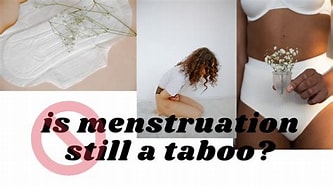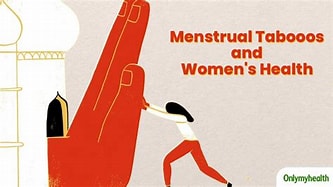Why Menstruation is Still a Taboo Topic
Introduction
Menstruation is a natural biological process that affects half the world’s population at some point in their lives. Yet, despite its universality, periods remain shrouded in stigma and taboo. Why is it that something so fundamental to human life is still considered a dirty secret? In this article, we’ll explore the reasons behind the taboo surrounding menstruation, its impact on women’s lives, and the global movement for menstrual equity.
Understanding the Menstrual Taboo
What is the Menstrual Taboo?
The menstrual taboo refers to the cultural and societal norms that dictate how menstruation is perceived and discussed. In many cultures, menstruation is seen as dirty or shameful, leading to silence and stigma around the topic. This taboo can manifest in various ways, from euphemisms used to describe periods to outright avoidance of the subject in public discourse.

Historical Context of Menstruation
Historically, menstruation has been viewed through various lenses—religious, cultural, and scientific. In ancient societies, menstrual blood was often associated with both life and death, leading to conflicting beliefs about its significance. Over time, as patriarchal structures solidified, menstruation became something to hide rather than celebrate.
The Role of Religion
Many religious traditions have contributed to the stigma surrounding menstruation. For example, in certain interpretations of Judaism and Islam, menstruating women are considered ritually unclean. These beliefs have permeated societal attitudes toward menstruation, reinforcing the notion that it should be kept private.
The Impact of Menstrual Stigma
Effects on Education
One of the most significant consequences of menstrual stigma is its impact on education. In many parts of the world, girls miss school during their periods due to a lack of proper sanitary products or fear of embarrassment. According to UNESCO, one in ten girls in Sub-Saharan Africa misses school during her menstrual cycle. This disruption can lead to long-term educational disadvantages.
Health Implications
The stigma surrounding menstruation can also have serious health implications. Many women and girls resort to using unhygienic materials during their periods due to lack of access to sanitary products. This can lead to infections and other health issues. Moreover, inadequate education about menstrual health means that many women do not understand their bodies or how to manage their cycles effectively.

Social Exclusion
In some cultures, menstruating women are socially excluded from daily activities. For instance, they may be forbidden from cooking or participating in religious ceremonies. This exclusion not only reinforces negative perceptions about menstruation but also perpetuates gender inequality by limiting women’s roles in society.
The Global Movement for Menstrual Equity
What is Menstrual Equity?
Menstrual equity refers to the idea that all individuals who menstruate should have access to safe and hygienic menstrual products, education about menstrual health, and a supportive environment free from stigma and discrimination. This concept has gained traction in recent years as activists work to address the inequalities surrounding menstruation.
Key Organizations Leading the Charge
Several organizations are at the forefront of the fight for menstrual equity:
- Plan International: This organization conducts research and advocacy work aimed at breaking down taboos surrounding menstruation.
- Days for Girls: Focused on providing sustainable menstrual hygiene solutions worldwide.
- The Red Box Project: A UK-based initiative that provides free menstrual products to schools.
These organizations highlight the importance of education and access to resources in combating menstrual stigma.
Educational Initiatives
Education plays a crucial role in dismantling menstrual taboos. Many advocates emphasize the need for comprehensive sex education that includes discussions about menstruation. By normalizing conversations around periods from an early age, we can help reduce stigma and empower future generations.
Changing Perspectives: Men’s Role in Breaking Taboos
Engaging Boys and Men
It’s essential to involve boys and men in discussions about menstruation. A survey conducted by Plan International revealed that many boys want to learn more about menstrual health and support efforts to normalize discussions around periods. By educating boys about menstruation, we can foster empathy and understanding while reducing stigma.

Challenging Toxic Masculinity
Toxic masculinity often perpetuates negative attitudes toward menstruation. When boys are taught that discussing bodily functions is “unmanly,” it creates an environment where periods are seen as taboo. By challenging these stereotypes and encouraging open dialogue, we can create a more inclusive atmosphere for everyone.
Cultural Differences in Attitudes Toward Menstruation
Positive Associations with Menstruation
While many cultures view menstruation negatively, some indigenous societies celebrate it as a rite of passage or a sacred process. For example, certain hunter-gatherer communities view menstruating women as powerful beings connected to nature. These positive associations challenge mainstream narratives around periods.
Regional Variations
Cultural attitudes toward menstruation vary significantly across regions:
- In India, menarche is often celebrated with rituals but can also lead to restrictions on girls’ activities.
- In Japan, there’s a growing movement towards normalizing conversations about periods through media campaigns.
- In Western countries, while there has been progress in destigmatizing periods, euphemisms still dominate conversations.
Understanding these regional differences is crucial for addressing menstrual stigma effectively.
The Future of Menstruation Discourse
Moving Towards Normalization
As conversations around gender equality continue to evolve, so too must our discussions about menstruation. Normalizing periods involves using clear language when discussing them and advocating for policies that support menstrual health.
Policy Changes for Menstrual Health
Governments play a crucial role in promoting menstrual equity through policy changes:
- Access to Products: Ensuring that sanitary products are available in schools and public restrooms.
- Education: Implementing comprehensive sex education programs that include information about menstruation.
- Tax Policies: Advocating for the elimination of taxes on menstrual products (often referred to as the “tampon tax”).
By enacting these changes, governments can help create an environment where menstruation is no longer stigmatized but recognized as a natural part of life.
Conclusion: Breaking the Silence Around Menstruation
The taboo surrounding menstruation remains deeply entrenched in many societies worldwide. However, through education, advocacy, and open dialogue, we can work towards breaking down these barriers.
Menstruation should not be a source of shame or embarrassment; instead, it should be recognized as a natural biological process deserving respect and understanding. As we continue to push for menstrual equity globally, let us remember that every conversation we have helps normalize this essential aspect of life—and brings us one step closer to achieving true gender equality.
FAQs
1. Why is menstruation considered taboo?
Menstruation is often viewed as dirty or shameful due to cultural beliefs rooted in historical misconceptions and religious teachings that promote secrecy around bodily functions.
2. How does menstrual stigma affect girls’ education?
Many girls miss school during their periods due to fear of embarrassment or lack of access to sanitary products; this can lead to long-term educational disadvantages.
3. What is menstrual equity?
Menstrual equity ensures that all individuals who menstruate have access to safe products, accurate information about their bodies, and an environment free from stigma.
4. How can men help break down menstrual taboos?
By educating themselves about menstruation and engaging in conversations with peers and family members, men can foster understanding and empathy while challenging negative stereotypes.
5. What steps can be taken to normalize discussions about menstruation?
Encouraging open dialogue through education at schools, using clear language when discussing periods, and advocating for policies supporting menstrual health are crucial steps toward normalization.

